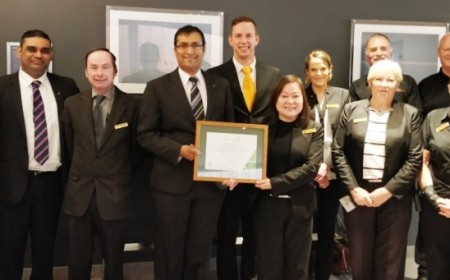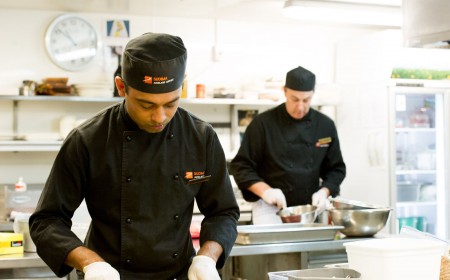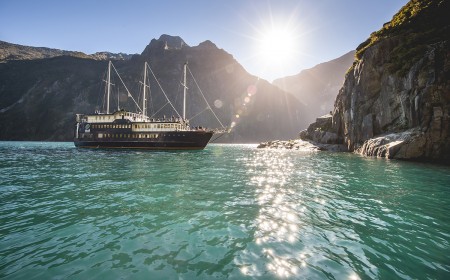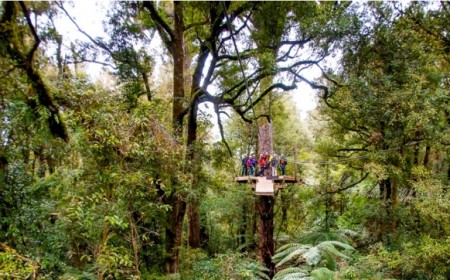Sans Souci Inn a sustainability pioneer
Nestled in the tiny Golden Bay village of Pohara, just back from the beachfront, is a little guesthouse and restaurant that has been leading the way in sustainable tourism for two-and-a-half decades.
The Sans Souci Inn, designed and hand-built by owner-operators Reto and Vera Balzer, offers guests a chance to experience some DIY Mediterranean eco-architecture in the heart of the idyllic Tasman region. The seven-room Inn, which opened in 1994, was built with sustainable materials like adobe. It incorporates grass roofs for insulation, composting toilets, and solar panels are used for water heating.
Sans Souci’s commitment to caring for the environment does not stop with the building. The operations of the Inn are designed to ensure the Inn fits as seamlessly as possible into its paradisiacal natural surroundings.
“We offer one set evening meal by bookings only which helps to minimise waste in the kitchen,” says Mrs. Balzer.
“We try and source our ingredients locally and our garden and orchard produce fruit, vegetables and herbs for the restaurant.”
Environmental Sustainability? Ticked off. How about the other forms of sustainability?
The Sans Souci Inn’s Host Community is well-served indeed by the business. The Balzers’ live next door and employ six local part-time staff, two of whom have been working with the business for 19 and 11 years respectively.
“We pay all of them a living wage. We have a strong local base of customers for our restaurant and accommodation,” says Mrs. Balzer.
And the visitors? Well, they are raving about it. Sans Souci Inn has earned an impressive 4.5 star rating on TripAdvisor from 160 reviews. One recent review, written by a traveller all the way from Norfolk in the United Kingdom, celebrated “a return visit to this wonderful hidden gem, [which is] run by a team of amazingly special people”. Another declared that “Sans Souci”—which means ‘no worries’ in French—“lives up to its name.” Ten reviewers said that they were made to feel “very welcome”.
Things are apparently going very well for the Sans Souci Inn in Pohara, but the Balzers’ see some challenges for the wider industry.
“We think the biggest challenge for NZ tourism in 2018 will be the ability of New Zealand’s tourism infrastructure to cope with the growing visitor arrivals,” says Mrs. Balzer.
“Some of New Zealand's popular tourist attractions are at capacity and some of the money earned through tourism should be spent on upgrading tourism infrastructure. A lot of the most popular tourist spots are in regional areas and those regions will need financial help from the government to enhance and upgrade their infrastructure.”




